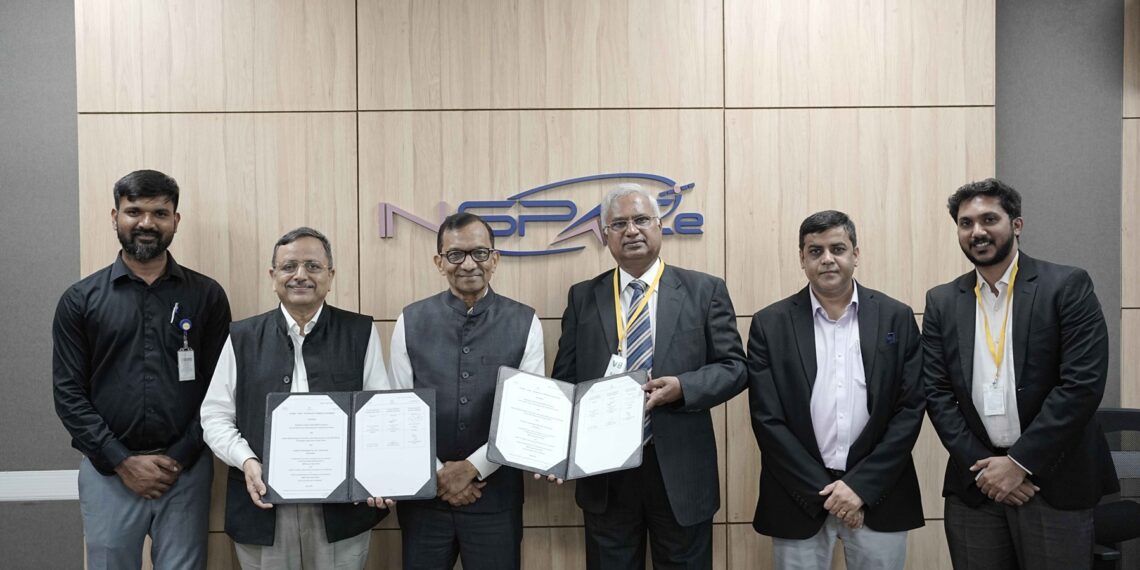New Delhi: The Indian National Space Promotion and Authorization Centre (IN-SPACe) announced on Thursday that it has facilitated the transfer of 10 advanced technologies developed by the Indian Space Research Organisation (ISRO) to six Indian companies.
The tripartite Technology Transfer Agreements (TTAs) were formalised between NewSpace India Limited (NSIL), IN-SPACe, and the six recipient companies during a signing ceremony held at the IN-SPACe headquarters in Ahmedabad.
These cutting-edge technologies span a range of applications including satellite launch systems, ground station infrastructure, geospatial tools, and defence-related equipment.
The transfer aims to accelerate domestic innovation, reduce reliance on imported systems, and expand commercial opportunities for Indian companies in both the space and non-space sectors.
IN-SPACe Chairman Dr. Pawan Goenka described the move as a strategic step towards creating a self-sustaining space economy.
“India has a rich R&D heritage in space technology through ISRO, and it’s now time for private players to harness and commercialise these technologies. This collaboration will strengthen our space ecosystem through industry-driven innovation,” he said.
Among the highlights, Hyderabad-based Zetatek Technologies received two high-precision inertial sensors — the Laser Gyroscope and the Ceramic Servo Accelerometer — designed by ISRO’s Inertial Systems Unit for satellite launch vehicle applications. Zetatek brings decades of experience in testing and calibrating Inertial Navigation Systems (INS).
Three ground station-related technologies — including a tri-band monopulse feed, a tri-axis antenna control system, and various frequency band feeds — were handed over to Hyderabad-based firms Avantel and Jisnu Communications, both of which specialise in communication systems for space and defence.
These technologies, until now sourced from foreign vendors, will now contribute to India’s self-reliance in ground infrastructure.
Ahmedabad-based Amnex Info Technologies was granted access to two geospatial modeling tools developed by ISRO’s Space Applications Centre (SAC).
These models are designed to assist in pest forecasting and crop yield estimation — crucial inputs for modern agricultural decision-making.
Meanwhile, Jalkruti Water Solutions, also based in Ahmedabad, received a compact, portable bathymetry system from ISRO’s National Remote Sensing Centre (NRSC), intended for integration with UAVs for monitoring water bodies.
ALSO READ: Awami League alleges Islamist plot to turn Bangladesh into ‘Next Afghanistan’
Additionally, a flame-retardant ceramic coating developed by ISRO’s Vikram Sarabhai Space Centre (VSSC) — originally intended for launch vehicles — has been transferred to Ramdev Chemicals for adaptation in broader industrial applications.
Rajeev Jyoti, Director of IN-SPACe’s Technical Directorate, emphasised the importance of collaborative implementation.
“We are not just transferring technology; we are ensuring its successful absorption. IN-SPACe, ISRO, and NSIL will work closely with each partner to provide the necessary support and guidance,” he said.















